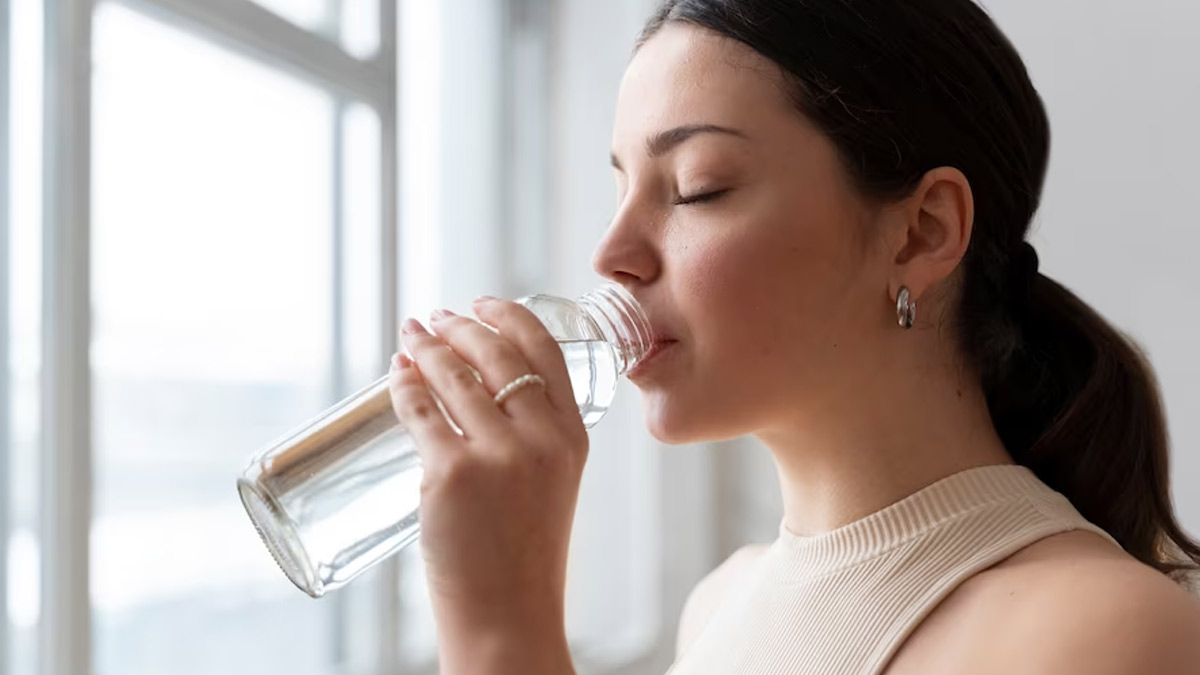
You might have heard about 60% of the human body is made from water. Isn’t it amazing how this liquid does some super important jobs, from supplying oxygen and nutrients to keeping your joints moving smoothly? But what is the ideal water consumption for a healthy body and how much is too much water? We spoke to our experts, who answered these questions for you and also answered whether drinking water with meals is good for you.
Maintaining The Balance Of Water Consumption

Dr Anil Kumar BT, HOD and Senior Consultant Nephrologist and Chief Transplant Physician, BGS Gleneagles Global Hospital, Bengaluru, said, “Dehydration occurs when fluid loss surpasses intake, leading to severe complications, such as brain swelling, kidney stones, and even death. On the other hand, excessive water intake can disrupt electrolyte balance, impacting health. Though mild cases might just increase urination, severe instances could result in hyponatremia, where brain swelling triggers neurological symptoms like confusion and seizures.”
Role Of Thirst And Hormones

Dr Kumar said, “The body's water balance is overseen by thirst and Arginine Vasopressin (AVP), or antidiuretic hormone. When heat prompts sweat losses, AVP is released to conserve water, reducing urine output. But when water intake exceeds needs, the brain senses reduced sodium levels and inhibits AVP. This signals the kidneys to expel excess water through dilute urine.”
Also Read: Do You Drink Enough Water During Pregnancy? Expert Lists The Importance Of Staying Hydrated
What Is The Ideal Daily Intake
Dr Kumar added, “For optimal hydration, finding the right balance tailored to your circumstances is the key. While some say you should drink eight glasses of water daily, the truth is more complicated. Factors like climate, activity level, health status, and diet influence water needs. Balancing fluid intake with calorie consumption is crucial, with a guideline of about one litre of liquid per 1,000-kilocalories.” This translates to around eight cups for an average adult consuming 2,000 daily calories. Distributing water intake throughout the day is the key to avoiding overloading the kidneys and risking electrolyte imbalances.
Dr Bindumathi PL, Senior Consultant, Internal Medicine, Aster CMI Hospital, Bengaluru, said that drinking water at regular intervals has several benefits. Water plays a crucial role in many bodily functions, which are as follows:
- Maintains blood volume
- Supplies oxygen and nutrients to all organs and tissues of the body
- Prevents kidney damage
- Helps in saliva creation
- Boosts skin health
- Regulates body temperature
- Aids in flushing waste out of the system
Water and Meals: What You Need to Know

Before Meals
Dr Bindumathi said,” Drinking water around 20-30 minutes before meals is better than right before eating. Some believe that having water just before a meal can help with weight loss by making you feel full and reducing food intake. However, this idea lacks scientific proof.” Drinking water before meals can temporarily reduce hunger, but once the water is digested, you might feel hungry again, leading to overeating.
During a 12-week reseach, it was found that people who drank 500 ml of water before each meal lost an additional 2 kg of weight in comparison to those who didn't adopt this habit.
During Meals
Dr Bindumathi added, “Water during meals helps digestion by breaking down food and making it easier to absorb nutrients. It can also prevent constipation and bloating. Taking small sips during meals gives you time to listen to your body's signals and know when you're full. However, avoid gulping down lots of water.
After Meals
Dr Bindumathi said, “Drinking water right after eating can actually aid digestion and prevent stomach upset. If your meal is high in fats, you might feel thirsty; in such cases, have a few sips of lukewarm water at intervals.”
[Disclaimer: The information in this article is shared by a registered healthcare professional and is for informational purposes only. Hence, we advise you to consult your expert if you have any concerns or face complications.]







